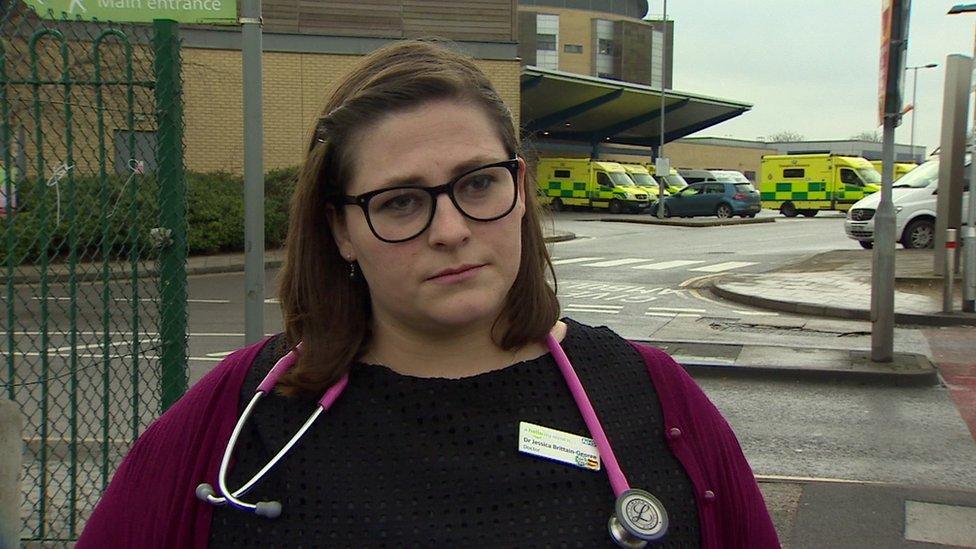Rise in attacks on Welsh Ambulance staff 'unacceptable'
- Published
Jon Johnston suffered a broken wrist and is unable to work or train hundreds of volunteers
When the emergency call came to help an unconscious man, paramedic Jon Johnston did not hesitate to respond.
Little did he know he would become part of a depressing "daily" trend.
Jon was assaulted by the very man he was trying to help and a broken wrist has left him unable to work or train hundreds of volunteers.
Attacks on Welsh Ambulance staff rose to almost 100 between April and June this year, from an quarterly average of 70 in 2017, despite tougher new laws.
However the full scale of the problem is thought to be far worse, with many incidents still going unreported.
Welsh Ambulance, politicians and unions are "concerned" by the rise and say more must be done to protect those on the frontline, such as Jon, from "unacceptable" attacks.
The 31-year-old from Swansea was treating an unconscious man lying in the street last month when he was assaulted.
"While I was assessing him, he pulled me to the ground. The job took over and I carried on helping but it was later that the pain began," he said.
Jon had broken the scaphoid bone in his right wrist. Being right-handed, the consequences could become worse. Surgery is a possibility and if he does not regain the mobility and strength needed for his job, there is a concern that the career he loves could be in danger.
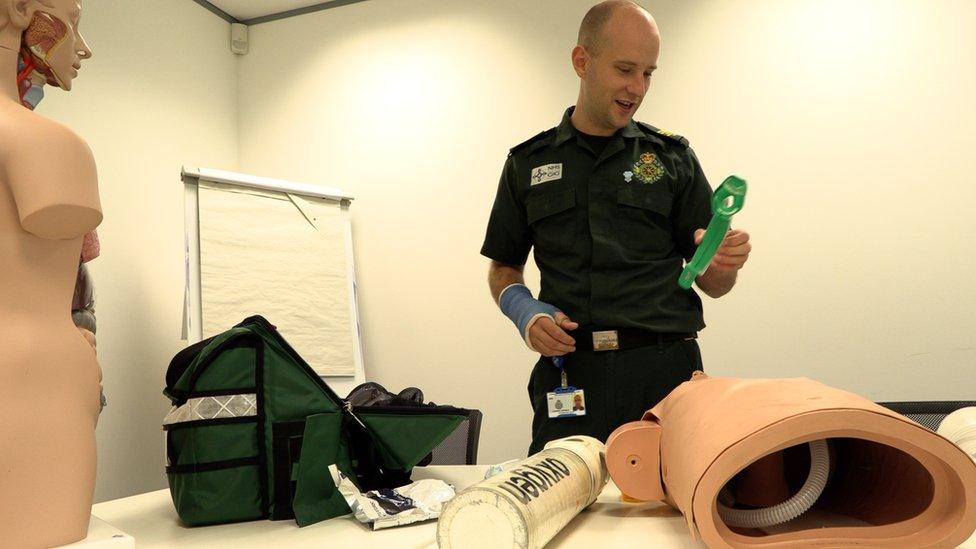
Jon said the support from colleagues and the NHS Trust convinced him to stay following a previous attack
"I'm proud to be a paramedic. I enjoy helping and caring for people, just like everyone else in this job. That's why we do it," he said.
"We always have to be apprehensive, you don't quite know what you're going into and sometimes you're alone. It can be scary.
"We go into the most traumatic and emotional situations.
"We have training to calm the situation but people under the influence of alcohol, drugs or who have mental health issues are unpredictable.
"People lash out but the next day have no recollection of what happened and are completely different."
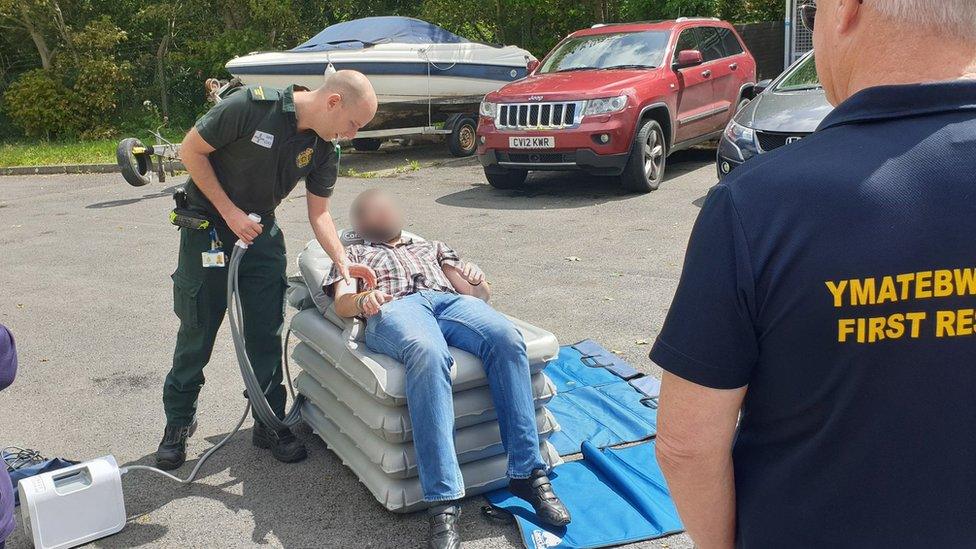
Volunteers have seen training courses cancelled while Jon recovers
As well as a paramedic, Jon leads the training of up to 500 new and current volunteers across west and central Wales.
It means Welsh Ambulance have been forced to cancel all the training courses he was due to give community responders, often first on the scene at emergencies.
But as well as Jon the worker, there is the impact on Jon the father of three.
"I can't lift the baby, I can't eat properly, cut my food or drive. It means a lot more work for my partner. It's very frustrating," he said.
It's not the first time Jon has been attacked having been previously knocked unconscious while on duty and left with a perforated eardrum.
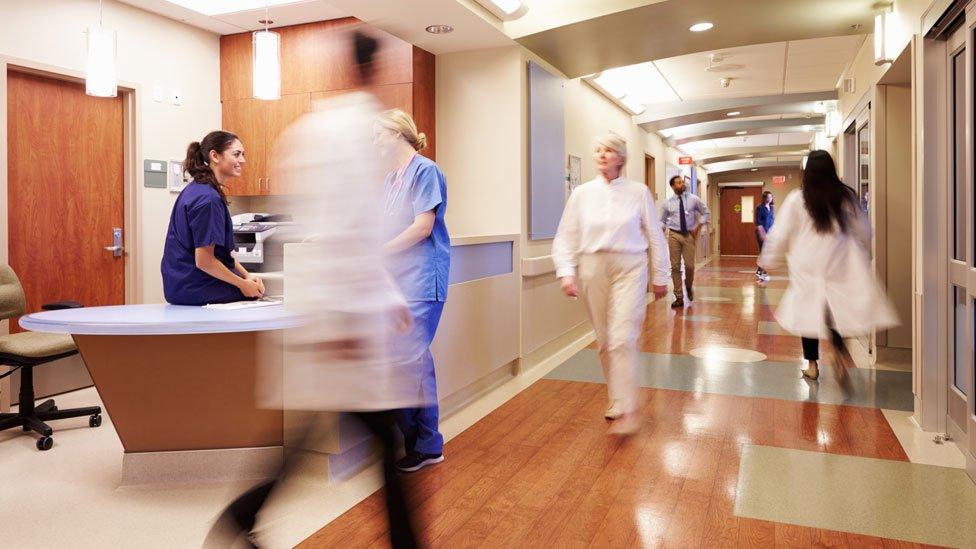
NHS staff would also be covered by the new law
However verbal abuse, threats and pushing have become almost a daily occurrence and inevitably takes a toll on staff.
"It does affect me and my partner does worry but I know there's a lot of support there from the trust and the police," he said.
"Being sworn at, spat on, threatened or pushed largely goes unreported but it needs to change.
"We go out there to help people so we don't expect abuse back."
Since the Assaults on Emergency Workers (Offences) Act, external was passed last November, 12 people in Wales have been jailed for assaulting paramedics and a further 33 punished.
However Rhondda MP Chris Bryant, who tabled the private members' bill, said more can be done.
"It makes me furious that thugs attack the very people trying to save their lives and make it far more difficult for the NHS to do its job," he said.
"Sometimes it's about resources or video cameras but the law should come down heavily on them
"An attack on our emergency services is an attack on all of us."
Chris Bryant says Wales sees 20 assaults on emergency workers a day
Alcohol and drugs are the biggest factors behind the violence, according to NHS figures, though incidents involving mental health are increasing.
Welsh Ambulance said it takes staff safety "very seriously" and said the violence was "unacceptable".
Director of operations Lee Brooks said: "Our people come to work because they care and want to enhance people's lives.
"Their tolerance levels are probably higher than most but that's not an excuse for abuse or assaults. It's not what our staff should have to accept and as an organisation we stand with them.
"We would ask the public to be mindful of the impact of violence and aggression has not just on that individual, but on this critical service and the wider community before lashing out."
Unison Wales, which represents ambulance staff, has called for tough sentencing.
Paul Summers, Unison Wales head of health, said: "Violence and abuse should not be tolerated under any circumstances, let alone whilst someone is doing their best to administer potentially life-saving treatment.
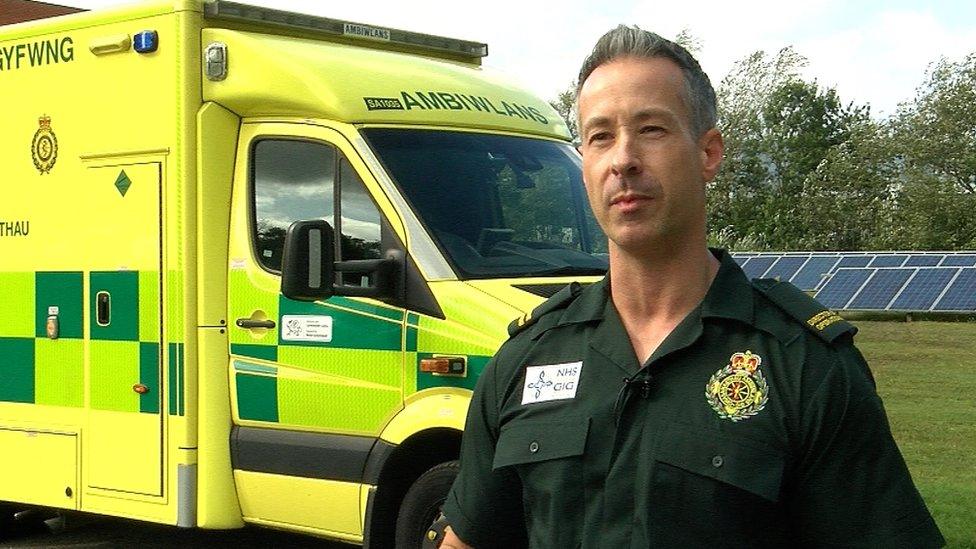
"It is more important than ever that we continue to prosecute offenders to demonstrate that if emergency workers are assaulted, there will be serious consequences."
A partnership between police, NHS and Crown Prosecution Service - known as the Obligatory Response to Violence in Healthcare, external - was established in the wake of the new laws.
The Welsh Government said NHS staff deserved to be treated with respect.
A spokeswoman added: "Any form of attack on NHS Wales staff is completely unacceptable. We are working with NHS Wales employers to eradicate physical or verbal assaults on staff."
Despite the pain, Jon bares no grudges against his attacker and fully intends to return to helping save lives.
"I don't feel anger towards that person. I don't know what his story is or any issues he's facing. It definitely hasn't put me off. I enjoy being a paramedic and I'll be back."
- Published18 July 2019
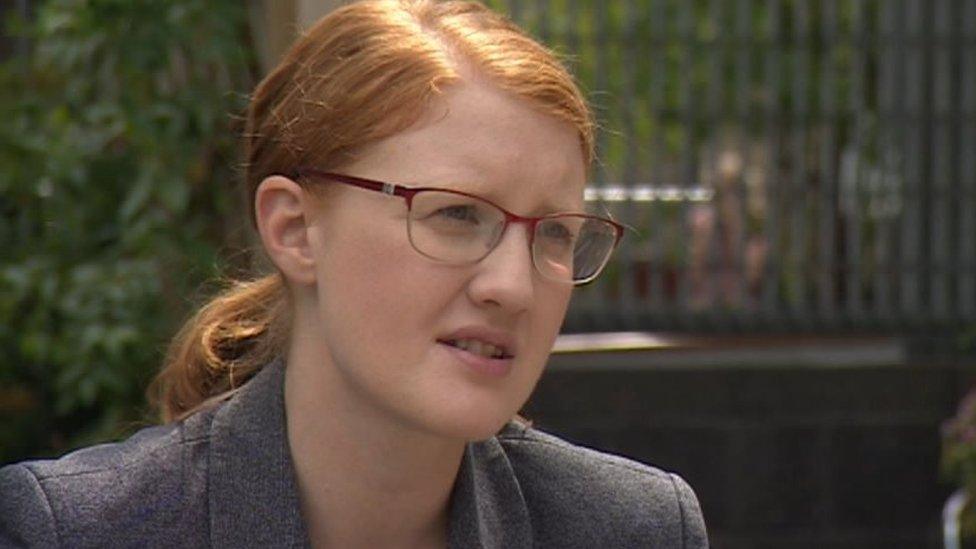
- Published13 November 2018

- Published29 June 2018
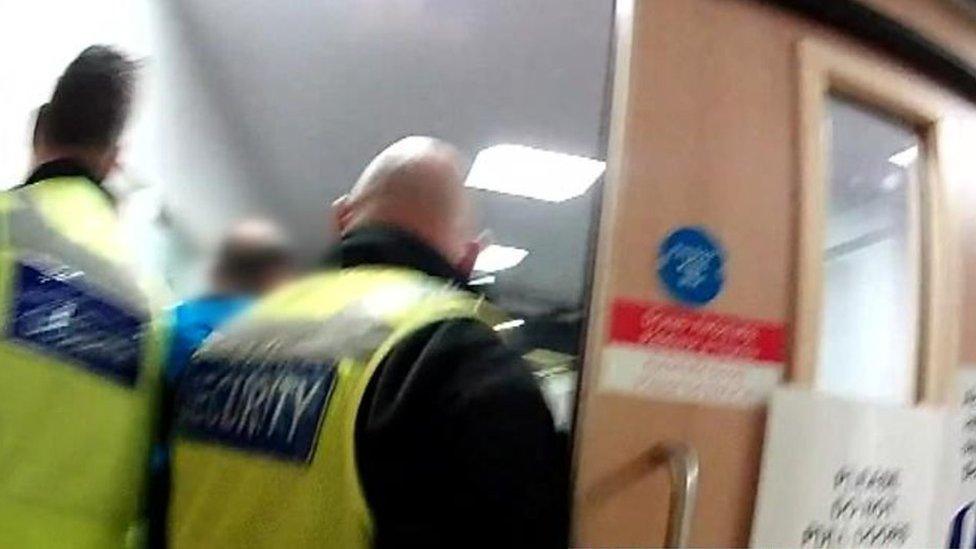
- Published18 June 2018
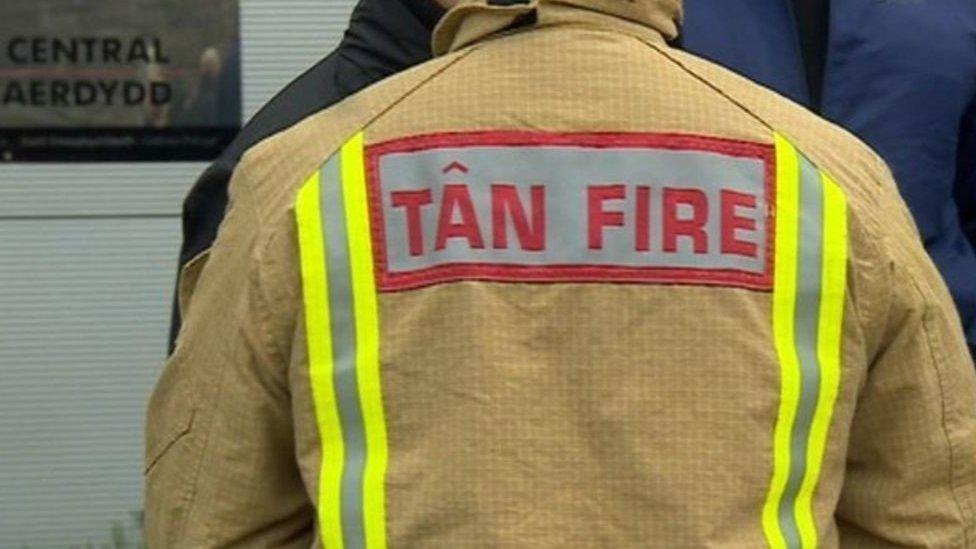
- Published17 June 2018
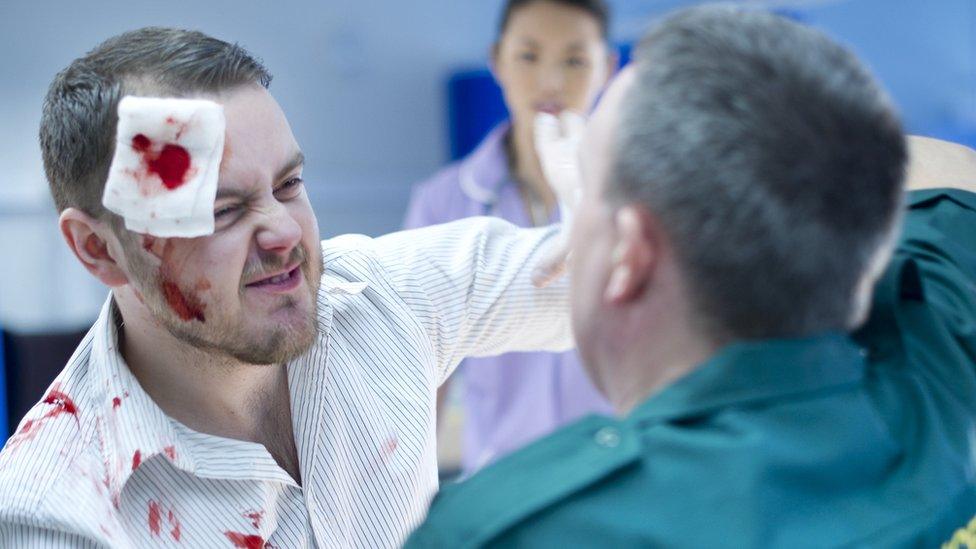
- Published16 October 2017
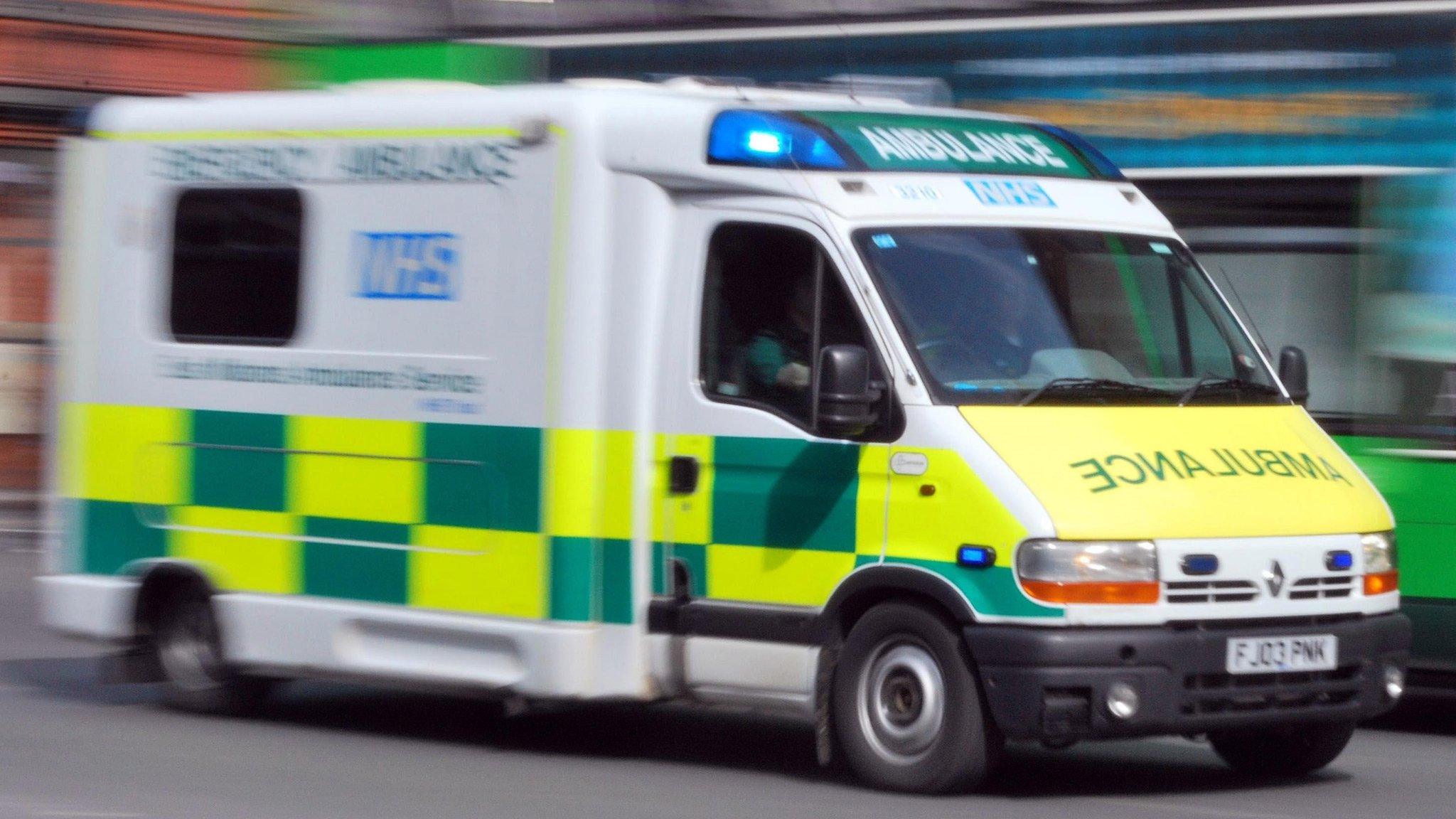
- Published10 February 2017
